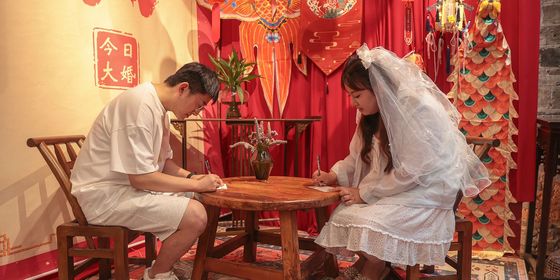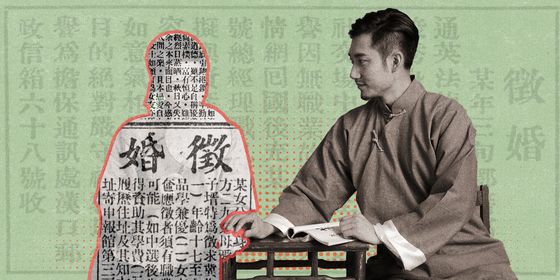Proposed ban on egg freezing reveals unmarried women’s ongoing fight for reproductive rights in China
“Why can [single] men freeze their sperm, when [single] women are not allowed to freeze their eggs?” This Weibo comment received over 165,000 likes in late May, part of a backlash against a proposal to formally prohibit single women from accessing fertility preservation services during this year’s meeting of the National People’s Congress (NPC), China’s top legislative body.
The deputy behind the proposal, Sun Wei, is a fertility doctor from Shandong province who justified the ban on health and safety reasons, citing potentially lethal side effects of the procedure. Doctors have previously stated that China’s egg freezing technology is “immature” and not ready for widespread use.
However, Dr. Sun also suggested that the ban should come in tandem with encouragement for women to marry and give birth at “appropriate” ages, reviving discrimination against the reproductive rights of unmarried women in China.
Egg freezing services sparked widespread discussion in the country for the first time in 2015, when actress Xu Jinglei announced that she had gotten her eggs frozen in the US at the age of 39. “It is the only medicine for regret in the world…if you didn’t buy a car or didn’t see a movie, you can make up for it later, but [fertility] is limited by age,” Xu told Vista magazine.
“Get married and give birth early” was also the advice Xu Zaozao (pseudonym) got from a doctor at the Beijing hospital whom she consulted about egg freezing in November 2018. With a rising career and no immediate plan to marry or raise a child, the 30-year-old media professional wanted to keep her options open for childbearing in the future, but was refused the service without a marriage certificate.
Xu Zaozao sued the hospital for violating gender equality and infringing on her personal rights—China’s first lawsuit over unmarried women’s right to access assisted reproductive technology (ART). The case was heard at the People’s Court of Chaoyang District, Beijing on December 23, 2019, but has since been adjourned, with no decision reached.
Legal professionals who have spoken to TWOC, The Paper, and other media point out that Chinese laws do not explicitly forbid unmarried women from freezing eggs. Rather, women are de facto banned from these services due to longstanding policies that interpret reproductive rights only as they relate to marriage.
The Beijing Obstetrics and Gynecology Hospital of Capital Medical University, where Xu unsuccessfully sought treatment, justified its refusal by a Ministry of Health (MOH) regulation that states, “It is forbidden to provide ART services to unmarried women and couples who do not meet the requirements of the national population and family planning laws and regulations.”
Jilin is the only province that explicitly grants unmarried women access to ARTs, stipulating in its provincial Family Planning Regulation that childless female residents over the legal age of marriage can have one child using legal medical reproductive technology without getting married.
However, according to a government report in 2017, no cases of women being granted this service were found in the province. Ma Hu, a single woman from Jilin, told Legal Weekly in 2018 that her request to have a baby via ART was refused by four hospitals in Jilin, citing the MOH’s rules.
“Essentially, the [egg-freezing] case is about whether reproductive rights shall be bound with marriage,” a legal professional commented on the Q & A platform Zhihu.
Though according to China’s Marriage Law, children born outside of marriage are entitled to equal rights with those born in wedlock, births outside of marriage have been discouraged culturally and institutionally.
Unmarried women have to pay a heavy fine, known as a “social compensation fee,” for each child they have, similar to married couples who exceed their birth quota under the “one-child” and “two-child” policies. Before 2016, children of unmarried parents could not get a household registration (hukou), which is essential for obtaining public education, health care, and other social benefits.
During the December hearing of Xu Zaozao’s case, the hospital also argued that single-parent families may be more likely to face psychological issues, an outcome of traditional stigmas against premarital sex and non-traditional parenting.
The worries that legalization of egg-freezing for unmarried women may further delay childbearing, lead to more single-parent families, and give rise to illegal transactions of eggs and surrogacy—which are also illegal and controversial in China—are “stereotypes, untested assumptions,” according to Marcia C. Inhorn, a professor of anthropology at Yale University who specializes in infertility and ART research.
“It’s been promoted by the media and by some scholars, that if egg-freezing is made legal, it’s going to lead to a flood of young women freezing their eggs to do their career, to go off and have children on their own,” Inhorn tells TWOC.
However, “most women turning to egg freezing are highly educated professional women in their late 30s who want to and are still hoping to get married and have children, but outperforming men makes it hard for them to find marital partners they want.”
The past decade has seen trends in delayed marriage and childbearing. According to the National Bureau of Statistics, between 2006 and 2016 the percent of women married between the ages of 20 and 24 declined from 47 to 26.3, while those married at or over the age of 40 increased from 3.9 percent to 16.2 percent. Likewise, the fertility rate of women between the ages of 20 and 24 fell by more than half, while those aged 35 to 39 doubled.
The lack of suitable partners is a growing issue for highly educated women globally, including China’s so-called “leftover” women, who face social pressure and discrimination for not being married by their late 20s. “To preserve their eggs would take out a lot of women’s stress and provide a lot of relief that they can still have a chance to find a partner and use the frozen eggs to be a biological mother,” says Inhorn, stressing that egg freezing is costly, disruptive to work and relationships, and not a decision that women make lightly.
Lawyer Chen believes that calls to amend family planning regulations will inevitably increase as the public demands more choices concerning childbearing, without binding it with marriage. “This appeal is historically inevitable as women demand equal rights with men in political, economical, cultural, social and other aspects,” she says. As a compromise, she recommends that the government begins by allowing unmarried women to freeze their eggs, but only use them after marriage.
The government response has yet to be updated since December 2017, when the National Health Commission announced it will “keep close attention on the development of egg freezing and other technologies, conduct feasibility research, prudently promote clinical application, and formulate laws and regulations to safeguard the rights and interests of unmarried women.”
Xu Zaozao does not think any of these reasons should deprive unmarried women of reproductive rights. “It is up to women to evaluate and decide whether to have a child,” she insisted in an interview after December’s hearing. Over 99 percent of 50,000 respondents polled by China Daily agreed.












